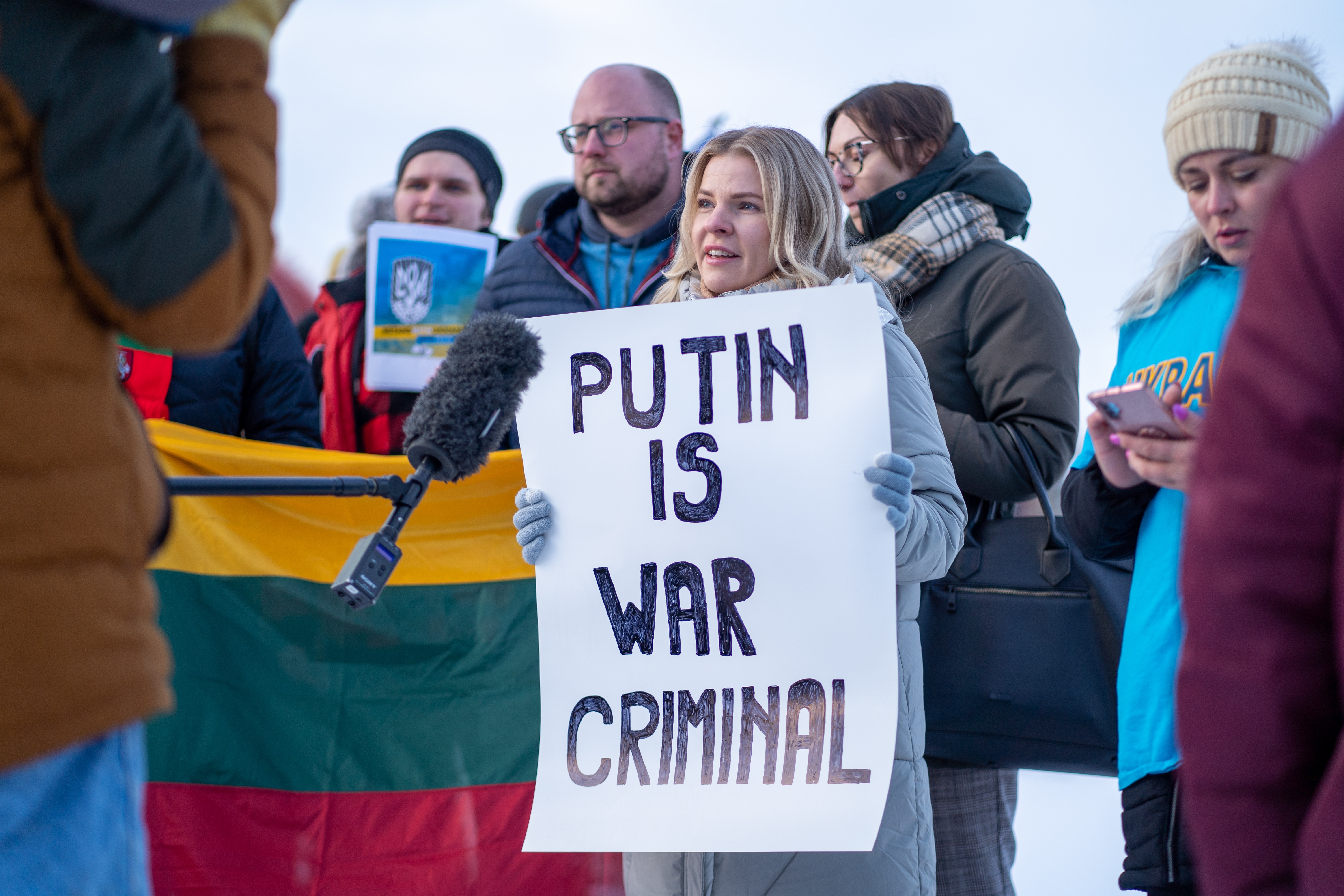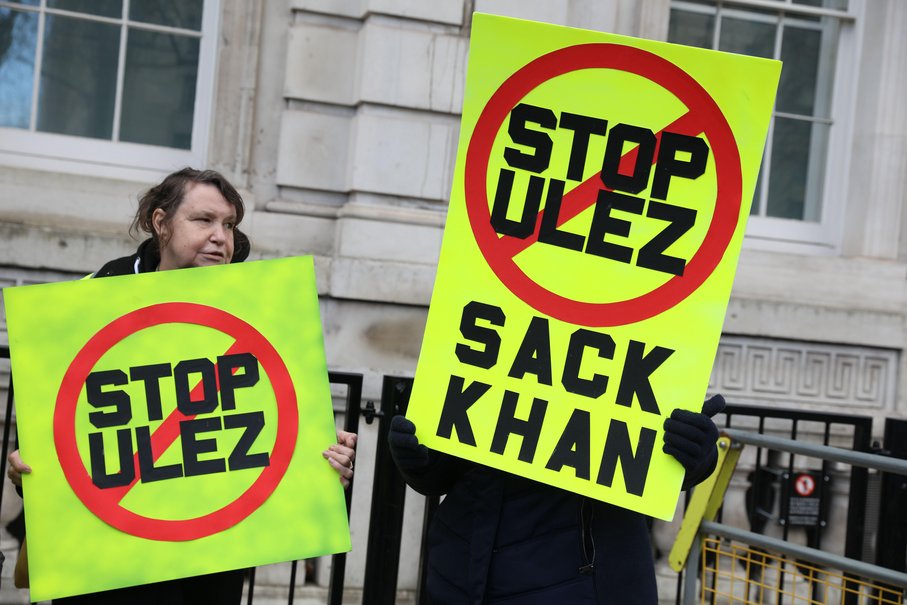No stone unturned: the women investigating Russia's war crimes
From a Nobel laureate to young journalists, Ukrainian women are documenting Russia's war crimes in exhaustive, exhausting detail - aiming to set a new bar for holding perpetrators accountable.
You don’t have to travel far in Ukraine to encounter the evidence and aftermath of war crimes. In Bucha, a commuter town for the capital, Kyiv, Russian occupiers shot civilians and left their bodies in the street, set up torture basements in houses, and raped women and children.
Head back east, from Bucha to Irpin and Izium, and traces of atrocities fan out across the newly liberated territories, where mass graves have been discovered. Survivors of violence and missile attacks tell the stories of dead friends and family, while the sirens warning of air raids wail out.
Even those who were not physically attacked feel violated Writer, journalist and lecturer Evgenia Podobna’s apartment was occupied by Russian soldiers, although she had escaped. “They would have killed me,” she explains. “My house was destroyed by the Russians. For me it is painful to understand that the Russians have been sitting in my apartment. That was worse than my home being destroyed.”
Despite no Russian ground troops ever arriving, the west of Ukraine is also not immune to war crimes: On 6 July, a residential building in Lviv, close to the Polish border was hit by a Russian strike. Six civilians were killed; dozens were injured.
Before most people had time to read the headlines, the team at Ukraine’s Centre for Civil Liberties had already got to work.
“Our local communicators are at the spot where the shelling happened, taking their own photos, talking to people and recording what took place,” explains Oleksandra Matviichuk, human rights lawyer and director of the Nobel-prize winning centre, which is cataloguing war crimes committed by Russian forces in Ukraine.
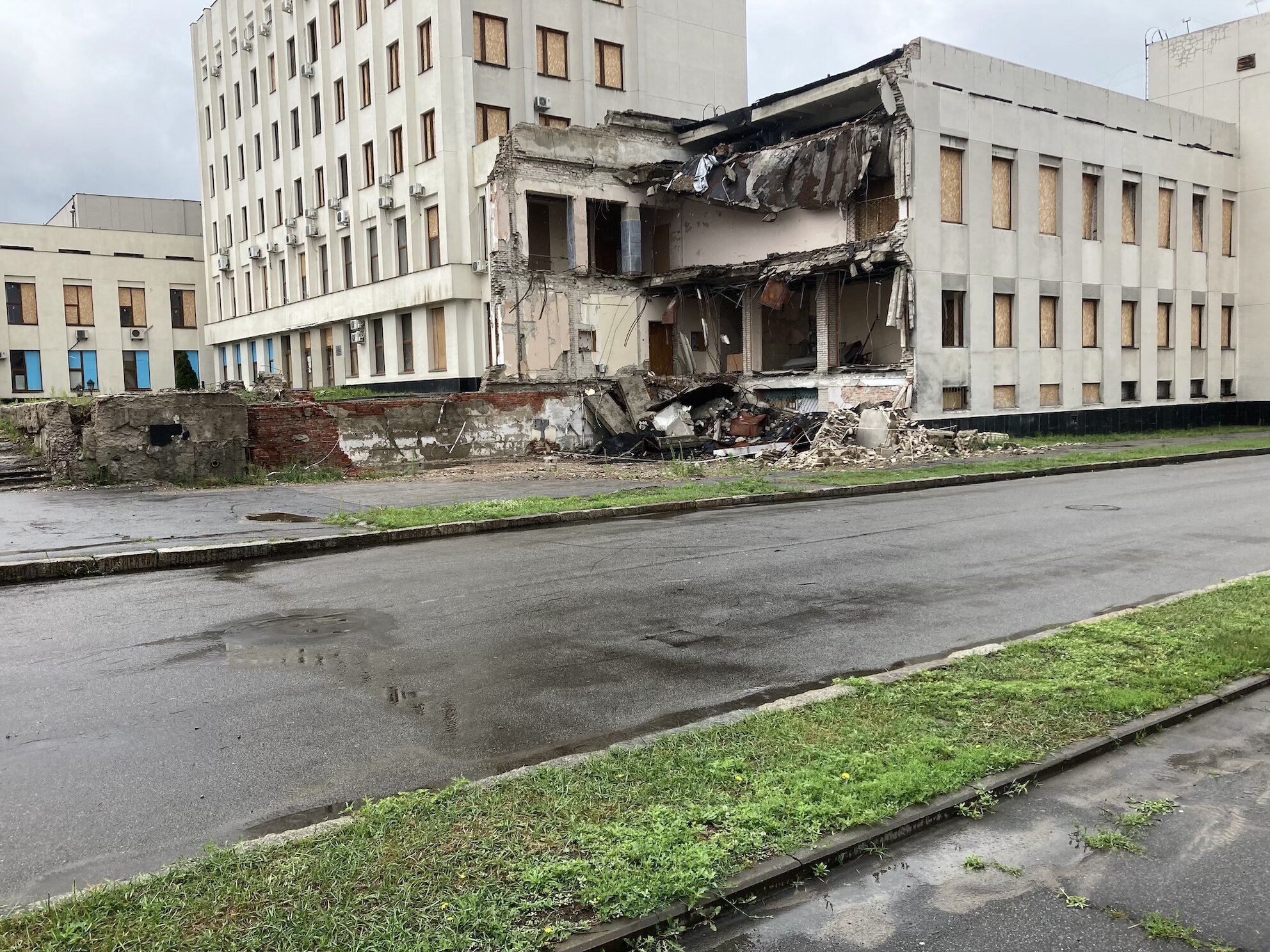
Speaking in her office in central Kyiv, two days after the strike in Lviv, with a Ukrainian version of the iconic Rosie the Riveter poster on the wall next to her framed Nobel Prize, Matviichuk describes the collaborative process of recording atrocities.
“We have built a network of Ukrainian communicators and we work on the ground across the whole country, including in the occupied territories,” she says. “We use different sources – open data, footage collected on smartphones. We send mobile groups to collect the testimonies of victims and witnesses of war crimes.”
The result is a huge and growing database of 42,000 episodes of rape, torture, beatings, abductions, and killings – a grim record of the human cost of Russia’s war in Europe.
The data, testimonies, images, videos and witness statements will one day, Matviichuk hopes, be used to hold the perpetrators to account. But prosecuting war crimes is not simple, she warns, and she already has fears about what she calls the “accountability gap”.
The global body responsible for prosecuting war crimes and crimes against humanity is the Hague’s International Criminal Court. Some of the cruellest mass murderers of recent history have appeared in its dock, from the Bosnian Serb genocidaire Radovan Karadžić, to Rwandan Genocidaire Jean-Bosco Barayagwiza.
But the vast majority of people responsible for the killing of civilians – whether rank-and-file murderers, decision-makers, instigators of genocidal hatred, or heads of state – have not faced prosecution, and never will.
While the ICC will certainly seek to prosecute war crimes committed in Ukraine, “it will likely limit its investigations to only a few cases,” Matviichuk explains. “We know that the court selects cases, and selects several victims for those cases.”
But when the crimes are in the tens of thousands, with individual soldiers encouraged to commit acts of sexual violence, those selected cases will struggle to represent justice for everyone.
‘It means the main burden is on the national system,” Matviichuk continues. “But it’s already stuck, because we are faced with this enormous number of war crimes. It's impossible to investigate, even for the best national legal system in the world”. Ukraine, she says, “is a nation in transit”, following first independence in 1991, and then 2014’s Revolution of Dignity with its shift towards a more democratic, accountable system. “We don’t yet have the best systems.”
Strengthening existing systems and building collaboration is crucial, she argues, for ensuring crimes are prosecuted. “We have to strengthen the ability of the International Criminal Court; we have to build and involve international elements into the level of national investigation and national justice. This could be, for example, a model where national judges work together with international judges; national investigators work together with international investigators”.
Unsurprisingly, the work takes its toll on the mental health of those recording the crimes. “It’s very difficult to work with such pure human pain, so intensely and for so long,” admits Matviichuk.
The evidence
The scale and density of war crimes – even those documented and uncovered by organisations like Centre for Civil Liberties – mean that most atrocities are at risk of becoming forgotten, disappearing from the headlines in the morass of violence and suffering that has been created by nearly 18 months of war.
The fear that stories would become lost and ignored motivated the The Reckoning Project – an initiative set up by Janine di Giovanni and Peter Pomerantsev, which partnered with Ukraine’s Public Interest Journalism Lab – to make a film about the cluster bomb attack on Kramatorsk train station in April 2022. The strike killed at least 58 civilians, many of whom were anxiously waiting for trains that would take them to safety.
The film was screened on the year anniversary of the attack. “I looked around the audience and I was thinking: what is in the heads of the rescue workers who are seeing this horrible story,” says the Project’s co-founder Nataliya Gumenyuk. “But they were pleased their story was told. That it hasn’t been forgotten”. It has been viewed nearly 50,000 times on YouTube.
More broadly, the project is dedicated to recording war crimes and giving a voice to victims, survivors and witnesses, in order to collect evidence, but also as an act of remembrance and education.
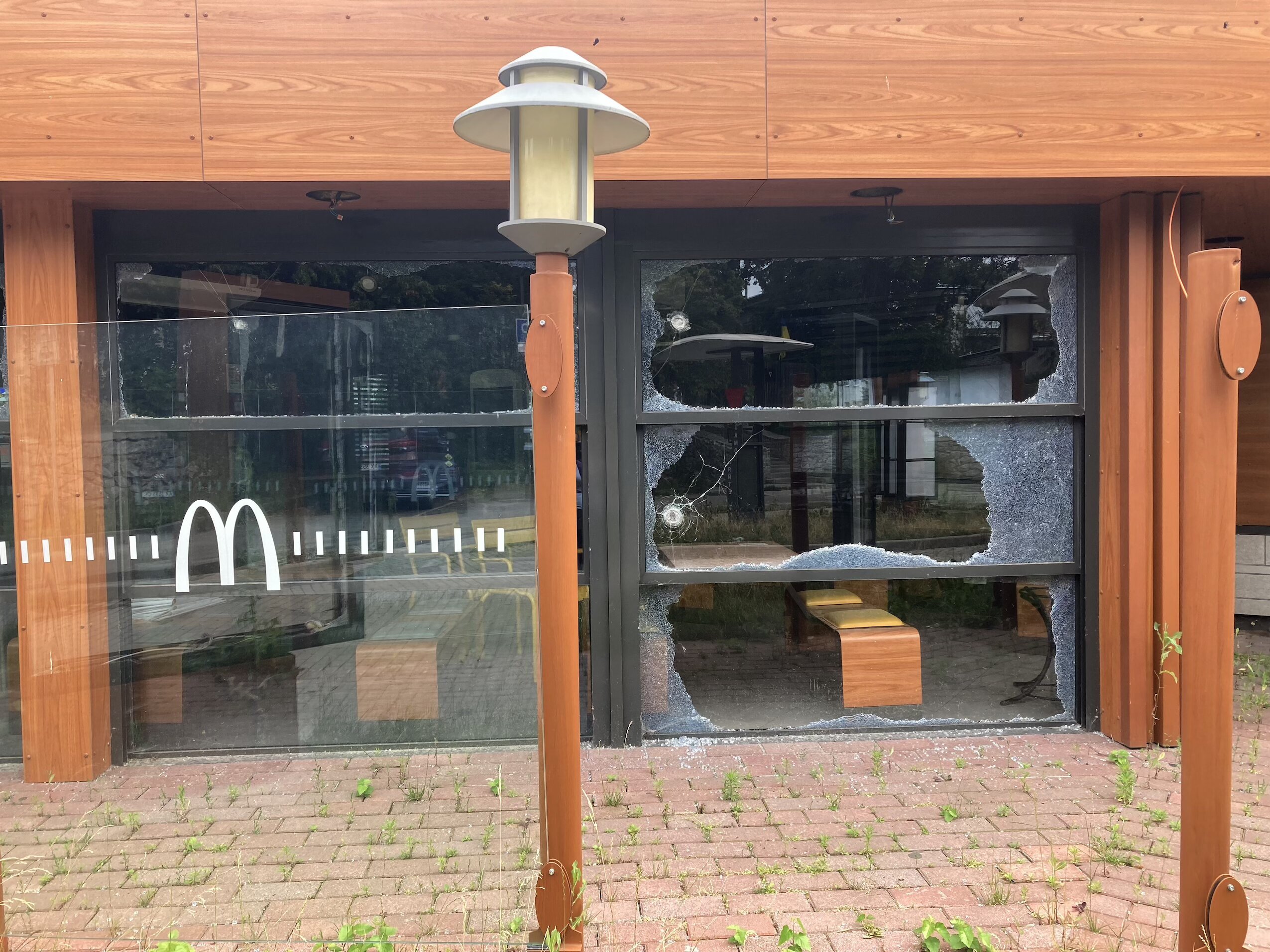
“We talk directly to the witnesses of war crimes,” says Gumenyuk. “The people who potentially can testify in court. We do a very detailed interview with the amount of details that would be enough for a prosecutor to understand what happened, with a focus on the perpetrators.”
The team then produces analysis, and cases are stored on a database where investigators can look for patterns in where and how crimes are committed. But the collection and documentation of war crimes for legal purposes is only one strand of the project’s activities. The other is to create a record of people’s experiences – what Gumenyuk calls “memory work”.
“To document the war crimes, we [first] had to write it down in a way that was neutral, according to a legal methodology, so it can be analysed and processed by a national or international law enforcement body,” says Gumenyuk. “The second thing was to preserve the memories of what has happened, so that the truth of these crimes can’t be denied.”
The imperative to record the deep impact of atrocities beyond the legal, technical terms, is what led to the group’s film about the Kramatorsk station bombing. Creating the documentary brought both strands of The Reckoning Project’s work together: recording evidence of war crimes, and giving people a chance to tell their story – a process which helps victims, survivors and witnesses a chance to move beyond trauma.
“Unless you can tell your story, you are in a cloud of pain,” Gumenyuk insists. “But when you tell it, you separate it from yourself. Then you are not the participant, you are the viewer.” The same process applies to Gumenyuk herself. “I'm very tired. It's super hard. But I also understand that unless the story is written, it's in your head, you are anxious. As long as you write it down, it makes you kind of at ease”.
If the Reckoning Project has built a movement of journalists turned war-crime investigators, then Anna Babinets and her team at Slidstvo have gone a step further, rescuing two victims of Russia’s crimes.
Having cut her journalistic teeth investigating corruption, Babinets’ and the Slidstvo team's attentions have turned to exposing war crimes, employing a range of techniques to uncover the identities of perpetrators.
“To investigate war crimes, we realised we needed new tools, like OSINT,” Babinets explains. OSINT refers to the collection and analysis of data gathered from open sources, such as social media accounts and channels, to produce actionable intelligence.
“To look for criminals from Russia, some of them only a few hours away, we need to check their social media to find out some information about their lives, and if they were in certain places in Ukraine. At the beginning of the big war we published our first story using OSINT that identified a killed Russian pilot using pictures of his helmet. Now we publish these stories every day.”
OSINT is one way to expose crimes. For her colleague Nastya Stanko – who will be taking on Babinets’ editor role while the latter goes on maternity leave – the other is through eye-witness accounts. She was one of the first journalists to report mass graves in the city of Izium, where more than 400 bodies were discovered. “It’s very important to be a witness,” she says. “To see it with your own eyes, and afterwards to show the public what is happening, what is the reality.”
The team turned from journalists to investigators to rescuers, when reporter Yulia Khimeryk started digging into the abduction of Ukrainian children by Russians.
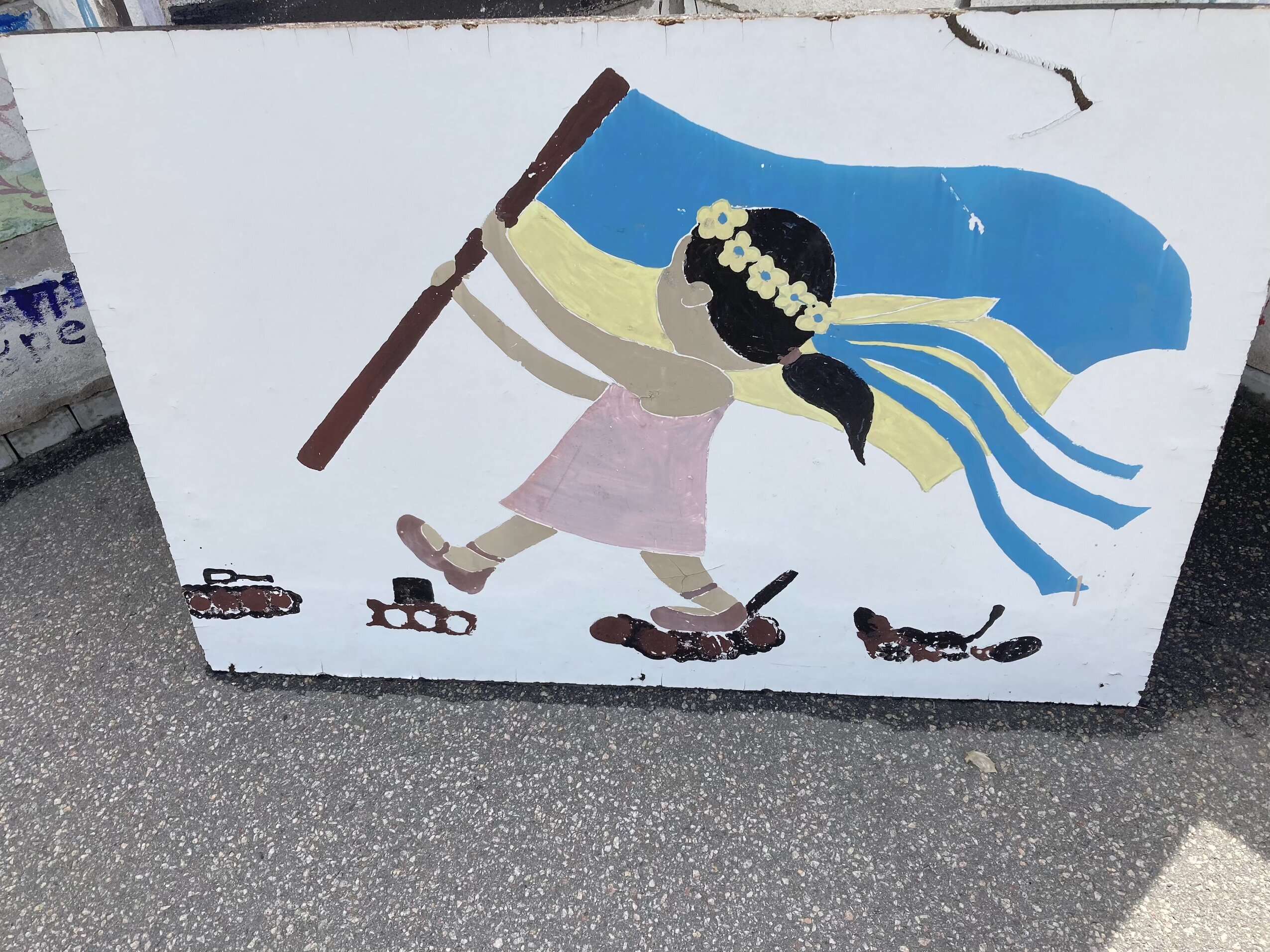
“We wanted to find kids who could provide us with proof of conditions of where they were being held in the occupied territories,” Babinets says of the remarkable story. “These two girls were sending Yulia photographs and videos. And we realised we could not publish until we got the girls to a safe place. It was never the plan, but we had to protect our sources.”
The girls’ journey to safety is documented in the film Escape from the Russians. But such abductions of Ukraine’s children opens up wider questions and issues relating to prosecuting war crimes and access to justice.
The ways to justice
Of all the crimes Russian forces have committed in Ukraine, it is this particular one – the abduction of children from Ukrainian territory – that has produced the most high-profile arrest warrant so far in the war.
On 17 March 2023, the International Criminal Court has issued an arrest warrant against Russia’s Commissioner for Children’s Rights, Maria Lvova-Belova and President Vladimir Putin for the “war crime of unlawful deportation of population (children)” and the “unlawful transfer of population (children) from occupied areas of Ukraine to the Russian Federation”.
The warrants illustrate the challenge of bringing perpetrators of war crimes to justice. How, exactly, can Putin and Lvova-Belova be arrested, safe as they are in the Kremlin?
“Of course many perpetrators of war crimes will go back to Russia, where we cannot reach them,” explains Nataliia Okhotnikova, a human rights adviser at ZMINA. “So one of the first steps is that Ukraine’s Prosecutor General is in close communication with the prosecutors at the ICC, and they are in touch with prosecutors across different countries in Europe.”
The latter has become crucial in early attempts at justice, with countries including Germany taking steps to prosecute war crimes committed by Russia in Ukraine against refugees now living in Western Europe. “There is a woman now living in Germany who was sexually assaulted in front of her son, and her husband was killed,” describes Okhotnikova. “The evidence was collected by Ukrainian civil society groups such as our partner Ukraine 5Am Coalition and passed to the German Prosecutor with a request to open a procedure.”
Okhotnikova is keen to emphasise that while there are thousands of incidents that require investigation and victims that need justice, this is a long-term project. By collecting evidence now, those responsible for war crimes may well be captured and held to account ten, even twenty years down the line – as was the case for Karadžić .
Securing justice for the victims is what drives the lawyers, human rights defenders, and journalists investigating and documenting war crimes – no matter how long it takes, and no matter how mentally gruelling the work.
“We have to do a lot because justice means different things to different people,” concludes Matviichuk. “For some it is about seeing the perpetrators behind bars, for some it is about compensation, for some it is about knowing the truth. For some it is about official recognition that what happened to them was not just immoral: it was illegal”.
The travel for this article was funded by the Justice for Journalism Foundation’s investigative grants programme.
The Lead is now on Substack.
Become a Member, and get our most groundbreaking content first. Become a Founder, and join the newsroom’s internal conversation - meet the writers, the editors and more.


